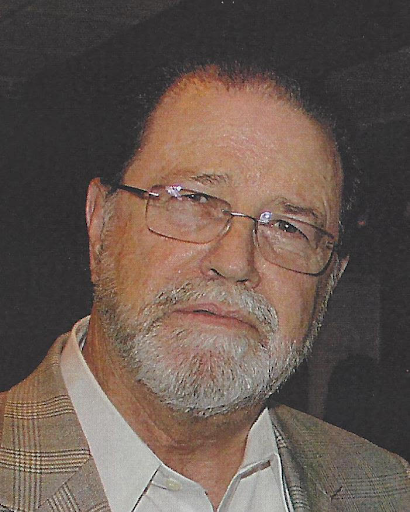I usually don’t go out on Friday nights until after 11 p.m.
While most would use that time between the last class of the day and the beginning of the weekend’s festivities to find the perfect outfit, scrounge the web for the most effective route to their evening’s destination, or simply take a breath after enduring the day’s craziness before embarking on a new level of insanity — I do something else. I put some cocoa on the stove, flip to HBO, and settle in for another rousing episode of Real Time with Bill Maher.
The show begins at the 10 o’clock hour with a catchy jingle and round of applause from the studio audience, and the comedian clad in Mad Men-esque suits, skinny ties and slicked-back silver hair pokes fun at the Week That Was the United States of America. He then interviews someone influential in the political world, cracking witty-yet-intelligent one-liners so effortlessly he’d make Stephen Colbert look like the host of some condescending open mic out in the boondocks.
Finally, Maher meets with a panel of two liberal pundits and one lonesome conservative talking head, to talk serious politics. The conversation is generally dominated by how clueless the Grand Old Party is and how the smart Democrats, now the legislative
minority in Congress, aren’t being listened to by their peers. But when the panel meets, nobody — not even President Obama — is safe from Maher’s wrath. It’s one of the reasons he’s now on HBO and no longer on Comedy Central.
It is smart. It is funny. It is thought-provoking.
But I would be a complete fool to take Real Time at face value. It is totally slanted rhetoric, mainly to Maher’s nuanced political views. I get it. I don’t watch it to agree with Maher on every topic, nor do I watch it to further any kind of political agenda. I watch it because I like to laugh, and I happen to like laughing at the people who run this country.
News is not for the faint of heart, with most leading stories on the nightly news coming in the form of rapes, murders, robberies, and the freshest sex scandal sweeping the nation. Sometimes, we need to laugh. I like any kind of political satire I can find — The Daily Show, The Colbert Report, Saturday Night Live — if only because it briefly provides a distraction fromthe horrors of the world in which we live.
I do my best to follow America’s political and social landscape, formatting my social media vehicles and daily reading materials so that I am always aware of the serious business that consumes this country. Truth is, I have to. When you read this newspaper, you put your faith in me and my staff that we are accurately and honestly telling the truth about what is going on around St. John’s and in the world. As a journalism student, writer, and editor, I have a responsibility to stay informed so that I can help you stay informed — and I think I do a pretty good job of that.
I know where the line between legitimate news and satire lies. I’d like to think my Torch colleagues do, too.
Unfortunately, it’s the Professional Newsmakers of the World I’m worried about. With the media’s ever-changing landscape, it’s hard to tell who’s actually a journalist and who’s either atop his cyber soapbox or blowing smoke where there is no fire. Between tweets, Facebook posts, blogs, and videos, people have as much access to creating media as they do experiencing it, a privilege I don’t think everyone deserves. There’s too much opportunity for agendas, innuendo, and, yes, a mockery of the news to reach the mediums we have grown to trust.
Think that’s a bit of a reach? Explain why the War on Terror has entered and exited the news cycle multiple times since 2002, why we were bombarded with daily [Read: hourly] Casey Anthony and Anthony Weiner updates throughout the summer and early fall, and why the only bit of information that tends to stay in most people’s minds about Mitt Romney is that he is of Mormon faith.
Better yet: Explain why, in the early stages of the 2012 Presidential race, that the entire Republican field appears more like the cast of a bad reality
television show than a group of serious candidates for the highest office in America.
Take your time. I can wait.
I think it has a lot to do with just how highly our society views Colbert, Maher, Jon Stewart, and Lorne Michaels. Those guys get some pretty good ratings for their political satire, and in a cash-strapped media world, ratings, page views, and news stand sales dominate the cutthroat business. What you see in the tabloids and on television is a reflection of what brings in the best ratings, the most page views, and the most sales at subway stands and 711s. And in the last decade, political satire has been the hot meal ticket.
You think the media is trying to hide the truth from the public? Not even close. Content is very carefully selected, not from people who want to keep your best interests in mind but from those desperate just to keep their organizations up and running. Everyone is guilty; even the New York Times, the standard by which Good Journalism is often based, has cut jobs in recent years.
Essentially, you see, hear and read what the News Men and Women of the World think you want to see, hear, and read. If satire is in vogue, well, you’re going to see a lot of it. Everyone will become a caricature, and every political event will become just like SNL’s cold opening sketch—a work of fiction that someone sitting behind a computer screen creates, as opposed to the reality we demand from the news.
That’s why it is even more important now to be mindful not just of what you read, but where you find what you read. That line between satire and reality is overlooked so frequently, it’s almost as if it no longer exists. All of us, news makers and consumers, need to acknowledge that there was ever a line in
the first place.
















